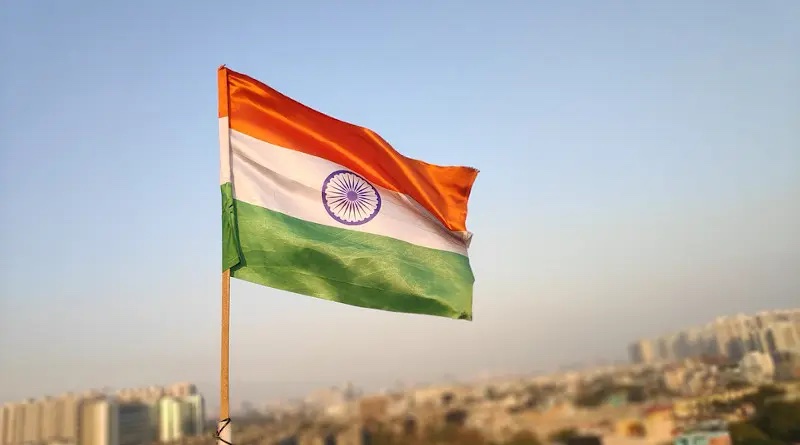Battle For Ukraine: Why India Refuses To Join Morality Parade – OpEd
In a move which western media turned a blind eye to or has failed to report adequately, India abstained from voting on a United Nations Security Council (UNSC) resolution sponsored by the United States that deplored in the “strongest terms” Russian “aggression” against Ukraine.
Instead western media focus, quite apart from reporting the expected veto by Russia – unsurprisingly – was on China’s abstention. This can be seen from the Reuters report on 26 February headlined, Russia vetoes UN Security action on Ukraine, China abstains. The emphasis on China’s position in the Reuters report appears geared towards further demonization of China and to fan anti-China sentiments in the western world opposed to the Russian action.
Also missing from western media reporting on India’s position is the response of Russia with the country’s mission in Delhi tweeting that it was “highly appreciative” of India’s “independent and balanced” position at the UN.
India has long been regarded by western nations as a model of democracy due to its embrace of a western-based democratic system, despite its less publicised questionable and often oppressive domestic and foreign policies. This favourable view of India can be contrasted with the negative views and opinions directed at ‘undemocratic’ and ‘authoritarian’ countries such as China.
However, in this critical period in global politics, India has not only joined China and the UAE in voting to abstain in the world’s most important body responsible for international peace and security on an issue of international crisis and danger.
India has also resisted pressure from the US, Britain, Australia and European Union nations to join in the trade, financial and other sanctions imposed on Putin and Russia.
Besides behind the scene lobbying by Biden and other western leaders targeted at India’s leaders, strong pressure had come from the Ukrainian President Zelensky who spoke with Prime Minister Modi a day after Ukrainian Foreign Minister Dmytro Kuleba spoke to his Indian counterpart and sought India’s support to the UN Security Council resolution. Following this, Dr Igor Polikha, Ambassador of Ukraine to India made the following impassioned public appeal over Indian news agency, ANI:
“At the present moment, we’re asking, pleading for support of India. In case of aggression of a totalitarian regime against democratic state, India should fully assume its global role. Modi ji is one of the most powerful & respected leaders in the world”
So what can we expect from the West’s poster child of democracy and favourite ally in global geo-politics as Russia’s advance into Ukraine continues and the end game approaches.
In a nutshell, the Indian position can be deduced from an opinion piece by Kanwal Sibal, former Indian foreign secretary. Kanwai, a career diplomat who served his country’s foreign service for over 50 years and was also Indian ambassador to Russia from 2004 to 2007, did not resort to diplomatic niceties or pretence unlike his current serving colleagues in his assessment of India’s position on the future of Ukraine and the direction of his nation’s foreign policy.
In his opinion piece, India and Others Not In a Morality Parade in UNSC he noted that
India is in a difficult situation as choosing sides is not an option, given the stakes we have in our ties with both the US and Russia. Our balanced position does no harm to US or Russian interests or influences their choices one way or another, as the dynamics of the situation are not under our control. India and others are not in a morality parade in the UNSC. The issue of violation of Ukrainian sovereignty is not the decisive issue as the West has violated the sovereignty of many countries – Yugoslavia, Serbia, Iraq, Libya, Syria – for its own reasons. US, Europe or Russia today have not taken any decisive position in our favour on our core security issues. India is not “sitting on the fence”. It has taken the right position so far in the UNSC debates on Ukraine (https://economictimes.indiatimes.com/news/india/india-and-others-not-in-a-morality-parade-in-unsc/articleshow/89820803.cms)
This commentary makes clear that it is national self interest that determines any national foreign policy whatever the commitment to western democratic values appears to be. In this regard it is necessary to note that India has a special and strategic relationship with Russia which goes back to the earliest days of the Soviet Union. This relationship has been reinforced by India’s dependence on Russia as its most prominent weapons supplier as well as source of military technical knowhow and assistance.
According to the Stockholm International Peace Research Institute, Russia is by far India’s largest arms supplier, accounting for 70 percent of India’s imports between 2011 and 2015 and roughly half between 2015 and 2020.
Serving and retired service officers and defence analysts in New Delhi have warned that sanctions on Russia spell trouble for India’s military which will face “interrupted and interminably delayed Russian defence kit”.
There is another lesson that India needs to take away even as it deems Kiev to be the sacrificial pawn in the battle between the US and Nato on the one side and Russia on the other. This is that no one is a winner in such wars. Another lesson is that India’s participation in the QUAD grouping aimed at containing China in the Indo Pacific region also does not serve the cause of peace. It can only precipitate an intensification of the arms race that will impoverish India and China further and benefit the merchants of war and death.

